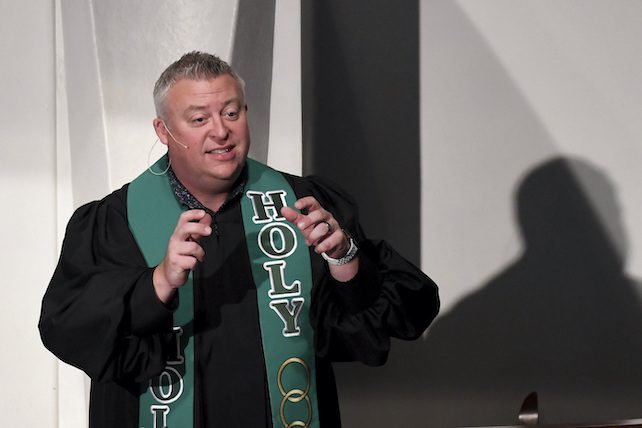United Methodists have for generations been a mainstay of the American religious landscape — one of the most geographically widespread of the major Protestant denominations, their steeples visible on urban streets, in county seats and along country roads, their ethos marked by a firm yet quiet faith, simple worship and earnest social service.
But the United Methodist Church is also the latest of several mainline Protestant denominations in America to begin fracturing, just as Episcopal, Lutheran and Presbyterian denominations lost significant minorities of churches and members this century amid debates over sexuality and theology.
In annual regional gatherings across the U.S. earlier this year, United Methodists approved requests of about 300 congregations to quit the denomination, according to United Methodist News Service. Special meetings in the second half of the year are expected to vote on as many as 1,000 more, according to the conservative advocacy group Wesleyan Covenant Association.
Scores of churches in Georgia, and hundreds in Texas, are considering disaffiliation. Some aren’t waiting for permission to leave: More than 100 congregations in Florida and North Carolina have filed or threatened lawsuits to break out.
Those departing are still a fraction of the estimated 30,000 congregations in the United States alone, with nearly 13,000 more abroad, according to recent UMC statistics.
But large United Methodist congregations are moving to the exits, including some of the largest in Arkansas, Georgia, Louisiana, Oklahoma and Texas.
The flashpoints are the denomination’s bans on same-sex marriages and ordaining openly LGBTQ clergy — though many see these as symptoms for deeper differences in views on justice, theology and scriptural authority. The denomination has repeatedly upheld these bans at legislative General Conferences, but some U.S. churches and clergy have defied them.
This spring, conservatives launched a new Global Methodist Church, where they are determined both to maintain and to enforce such bans.
A proposal to amicably divide the denomination and its assets, unveiled in early 2020, has lost its once-broad support after years of pandemic-related delays to the legislative General Conference, whose vote was needed to ratify it.
Now the breakup and the negotiations are happening piecemeal — one regional conference at a time.
New York Bishop Thomas Bickerton, president of the Council of Bishops, issued a statement in August denouncing “a constant barrage of negative rhetoric that is filled with falsehood and inaccuracies” by breakaway groups. In particular, he disputed allegations that the church is changing core doctrines.

